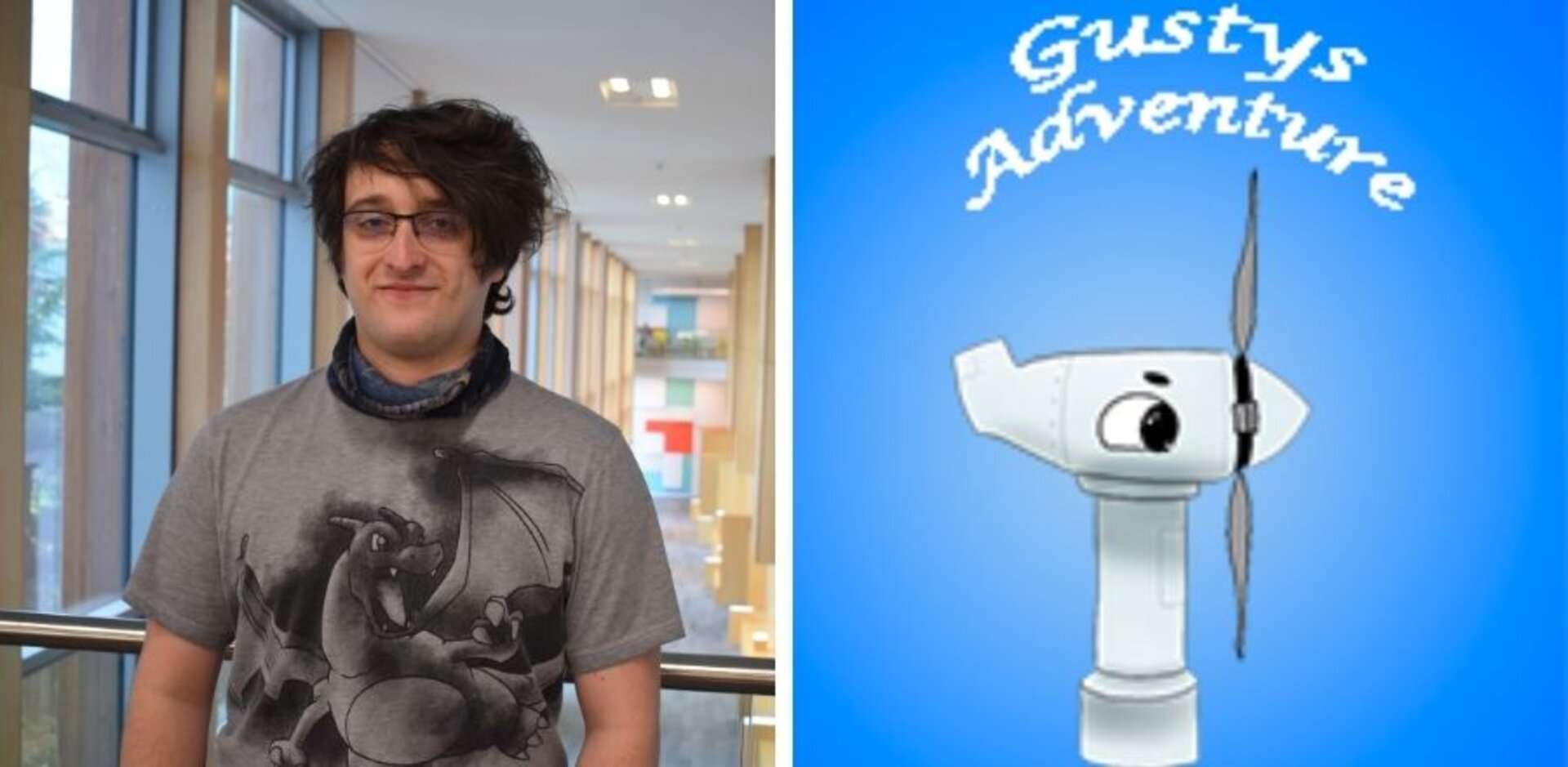GCU students address climate crisis during 48 hour Game Jam

GCU recently hosted the COP26 Game Jam – a 48-hour challenge to develop a climate change based video game aimed at raising awareness of climate related issues.
As part of the COP26 summit, GCU wanted to bring game developers together to be a part of the ongoing discussions of climate change. Using their creativity, participants of the Game Jam were asked to develop a game which would address the main themes of COP26 (such as securing global net zero and mobilizing finance).
Open to game developers all over the UK, participants were asked to team up and work together – communicating with each other virtually due to the ongoing pandemic. The climate conscious games would then be judged by a panel, with the games being awarded prizes for “Most Impactful” and “Judges Favourite”. A prize of £50-£100 would also be up for grabs.
3rd year Computer Games (Design) student Stefan Fisher, was among those involved and helped submit a game titled “Gusty’s Adventure”. Focusing on wind turbines, the game follows the story of Gusty, a small wind turbine who is seeking funding to help ‘build’ his family. The game, which is designed for children, is focused on education behind renewable energy and the importance of funding behind it.
He said: “It was a platform level based game, and the aim is to collect funding to help get Gusty’s family back. It’s almost like a child’s story book, with a cute, cartoony style to it. The artists on our team spent all weekend creating the character, backgrounds etc and they did a great job of it.
Our team actually involved two artists; one from GCU and the other was a student from a University in Winchester.”
Taking part in a Game Jam for the first time, Stefan found that working virtually could be challenging at times. He said: “I don’t even know what the rest of our team looks like! It was quite strange to communicate back and forth virtually. It meant that there was sometimes a delay in things being done – it’s definitely a lot easier to do in person!
I got the chance to work with another student from my course – we’ve both been studying together since 1st year so we have really done it all! We bounce off each other really well which made the whole process a lot easier.
I did actually ask some others from the course to take part, but they weren’t interested due to the stigma of Game Jams – everyone assumes you need to be working all day and night! I have heard of some students taking part and not even sleeping, which isn’t good of course.”
After having an enjoyable first time experience, Stefan encourages other students to take part in a Game Jam event. He said: “I would definitely recommend taking part in a Game Jam at least once whilst at University. It’s a really good opportunity to just focus on creating a game without having to produce any additional documents – you can just enjoy creating the game itself.
Even though the game is made quickly, you can look at it afterwards and look for ways to improve it. For me, I wanted my game to be very story based and the feedback I have had since then has shown me that other people wanted to keep playing because of the story, which was good to know!
Making a game like this has also allowed us to get across an educational message, but in a creative way. We aimed our game towards kids, so they could see a wind turbine and think “Gusty!” which is allows them to understand the impact of environmental funding.”
“Gusty’s Adventure” can be played here
By Rachael McAlonan
Got a SCEBE or GSBS story? Email me at Rachael.McAlonan@gcu.ac.uk or connect with me on social media
